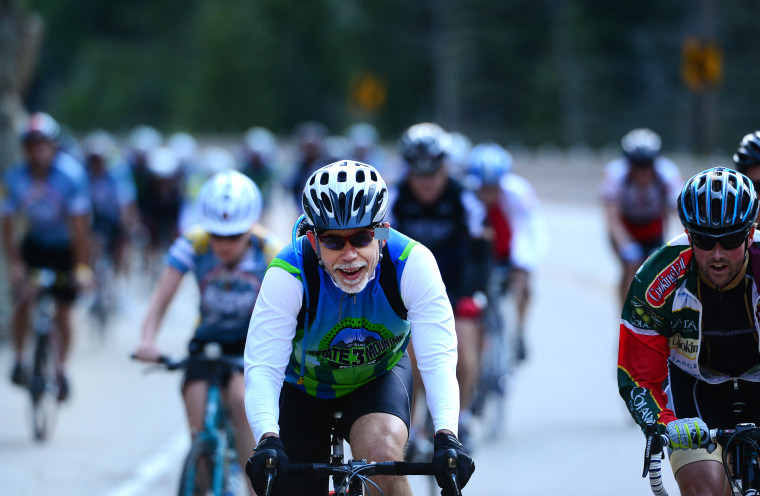Here’s more evidence that regular exercise really is the best medicine: avid cyclists as old as 79 had healthy muscle and immune function as good as people 30 years younger who did not exercise.
British researchers tested the muscles and immune systems of a group of middle-aged and elderly cyclists and compared them to younger people who do not exercise regularly.
The cyclists were healthier, both in terms of their muscles and their immune systems, than middle-aged couch potatoes. That's no surprise.
But they also looked as healthy, biologically, as a group of people aged 20 to 36 who did not exercise, the team reported in the journal Aging Cell.
By some measures, their bodies had not aged at all.
“It really tells us that staying physically active all of your adult life can prevent much of what we think of as aging, including immune aging,” said Janet Lord, who directs the Institute of Inflammation and Ageing at the University of Birmingham.
The team did two experiments taking muscle samples from their volunteers and also analyzing their immune systems at a very detailed level.
They worked with a group of 125 male and female cyclists aged 55 to 79, who regularly cycled long distances — 35 to 60 miles in a day at a fairly rapid clip.
They compared them to 75 people their own age who did not exercise and also to 55 young adults aged 20 to 36 who didn’t exercise.
The older cyclists did not lose muscle mass, their cholesterol levels stayed healthy, they did not gain as much body fat as the inactive adults and their immune systems looked 30 or more years younger, the team found.
Usually people start losing some immune function by the time they are 20. But the cyclists had not lost any at all.
“What we predict is that our cyclists should be able to respond really well to their annual flu vaccination and have a lower incidence of infections,” Lord said.
The study suggests that what has come to be an expected loss of immune protection may be caused by a lack of exercise, not by simply getting older.
“We conclude that maintained physical activity in to middle and old age protects against many aspects of immune aging which are in large part lifestyle-driven,” the researchers wrote.
“Our findings debunk the assumption that aging automatically makes us more frail,” Lord said in a statement.
"Our research means we now have strong evidence that encouraging people to commit to regular exercise throughout their lives is a viable solution to the problem that we are living longer but not healthier."
The researchers said it’s possible there is something about the older cyclists that makes them healthier than the average person, and thus able to stay active late into life. But they looked and could not find what that might be.
"The findings emphasize the fact that the cyclists do not exercise because they are healthy, but that they are healthy because they have been exercising for such a large proportion of their lives,” said Stephen Harridge, director of the Centre of Human and Aerospace Physiological Sciences at King's College London, who also worked on the study.
Researchers know that a lack of exercise is bad for you.
The Centers for Disease Control and Prevention recommends that people get at least 2 ½ hours a week of moderate activity, such as walking briskly enough to get slightly out of breath.
“We hope that this will really encourage adults to stay as physically active as they can,” Lord said.



